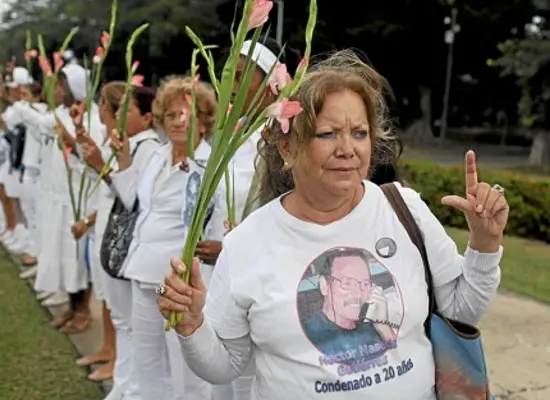After the filing of the health reform that was carried out in the Plaza de Armas last Monday, by the Minister of Health, Carolina Corcho, and the President of the Republic, Gustavo Petro, different reactions are already beginning to be generated. compared to what is proposed in the bill, which aims to the restructuring of the health system focused on primary care.
(Read: In networks the trend is nonconformity about the health reform).
However, within the articulated there are proposals on the transitional future of Health Promotion Entities (EPS)as well as the migration of members of the EPS in liquidation.
The text details the plans they have around the Primary Care Centers, the transfer of resources to the Resource Administrator of the General System of Social Security in Health (Adres), the role of the New EPS, in addition to the discussion on the reform debate in extra sessions of Congress.
Faced with the EPS, the articles resume the discussion of progressivity, where a territorialization process will be carried outconcentrating its operation in the cities and departments with the largest number of affiliates and organization of the provision of services.
One of the articles that has sounded the most is the one that refers to the harmonization of the transition operation and evolution of the EPS with the new system. Regarding this matter, the Government indicates that for each household, “all its members must be affiliated with the same EPS.” In addition, it is proposed that in those places where these entities do not remain, the New EPS will assume the insurance.
(Also: ‘Allow the reforms’, President Petro’s request to Colombia).
On the other hand, it is indicated that those EPS that comply with the technical provisions established by law, may create and manage Primary Care Centers in the assigned territories, as well as manage the referral and counter-referral systems of the related persons. Also, the EPS may carry out or execute contracted audits that the system requires.
In terms of evolution, the reform proposes that from the entry into force of the new law, there will be no authorization to enter the health system of new EPS. But, looking towards the transition, it is suggested that these entities will be able to split and specialize their institutions that provide low, medium and high complexity services and integrate them into comprehensive and integrated care networks.
However, the issue that has struck a chord the most is the ‘metamorphosis’ around the future of these entities.
According to the norm, the EPS that remain in the health system during the transition will progressively divide their service delivery institutions. Basically, the role of the EPS is changed, migrating from the administration of system resources to being Healthcare Provider Institutions (IPS).
(Read: Members of a single household must be enrolled in a single EPS?).
The EPS union, Acemi, has been one of the main opponents of the project, even before the text was known in detail.
Gustavo Petro in the filing of the health reform
TIME
Now, after knowing the content of the project, the union indicated that “To say that the EPS are health service providers is equivalent to eliminating them. In addition, that keeping the name of the EPS does not mean maintaining its role as insurers and that the project fragments its functions and divides them among different entities, which could generate great chaos within the system.”.
The union warned that no one would be assuming the responsibility and function of managing the health risk and that with the project, “both disappear.” On the contrary, the responsibility for forming, coordinating and articulating the network of services would be transferring to the health secretariats of the departmental and municipal territorial entities.
Acemi argued that, between 2018 and 2019, the departmental health secretariats only managed to verify and enable 3% of the delivery networks structured by the EPS.
Faced with the coordination of the system, the union warned of a “high risk of ineffectiveness”, not only because of the coordination that the territorial entities would have to have with different instances, but also because it is not clear how the network of specialists who work will be linked currently from their offices to the new model.
(See: Health reform: reactions to the project filed by the Government).
“It is worrying that the quality of services will be reduced to adjust the cost to the tariff manual, without anyone supervising the quality”, indicates the EPS union. In addition, he criticized that, since the Adres would temporarily manage the resources, they would be turned over to the mayors and governors.
Finally, he argued that “the transition process is actually a liquidation process of the EPS” and that there are still many concerns about the future of the system.
Added to this, Gestar Salud, the union of subsidized EPS, also spoke out, and assured that it “considers that the bill to reform the health system based in Congress does not build on what has been built and, on the contrary, destroys the advances of more of 70 years of history of social security in health in Colombia”.
According to Gestarsalud, the reform “proposes a nationalization and monopoly of the operation” that rrestricts the principle of freedom of choice of userswith all the risks that a service exclusively administered by the State implies.
(Keep reading: ‘Petro heard us a lot, but this was not translated into the text’: Gaviria).

EPS.
Faced with the management of the EPS, Augusto Galán Sarmiento, former Minister of Health and director of the Así Vamos en Salud think tank, told Portafolio that A profound change is being made in Comprehensive Health Risk Managementa function that EPSs and insurers fulfill today.
“It would seem that in the long term this management will be diluted in several state organizations at different administrative levels.”, assured the former minister.
The former official indicated that what is going to happen is that the EPS would have to become different institutions that provide health services, which is known as IPS, and manage them as long as they want to do so and are authorized. “Their nature would change and they would stop being comprehensive risk managers to be health service providers,” he said.
In turn, Gustavo Morales Cobo, former president of Acemi, assured that this new model intends to take advantage of the capacities that EPSs have today in the management of affiliatesmanagement of health risk management, appointments, monitoring and delivery of medicines, to give way to the administration of Primary Care Centers.
(Read: The ABCs of the government’s health reform project Petriver).
“This is a tetris game between the State and the EPS. It works by removing the management of the resources, but giving it the administration of the centers. Now they would be like IPS. Whether it is good or bad, that is the great debate. Removing the management of resources from good EPS is a mistake, but that is the bet that the Government is makingMorales said.

Nueva EPS is the one that received the most Coomeva affiliates (293,117).
WEATHER Archive
Although the reform around the EPS has already given rise to discussion, a punctuality of the project would give it Extraordinary powers to President Petro to issue provisions and carry out budget operations that are required to capitalize the New EPS in the transition.
Faced with this, former minister Augusto Galán stated that in the short term the New EPS will hypertrophy. “It is not known how far it will go and there is no clarity in what is meant”, he explained.
On the other hand, the distribution of resources will be carried out by direct monthly transfer from the ADRES to public, private or mixed health service providers.
Also, the Public Network Strengthening for Equity account will be managed, which will be financed from accounts assigned to territorial entities and others with a specific destination for health.

Congress of the republic.
The Government has opted for the reform to enter Congress as an ordinary law, in the Seventh Commission of the Chamber, in charge of sector affairs, but various opinions have warned that should enter the Legislature as a statutory project.
(Keep reading: What will happen to the EPS?: this says the Petro health reform).
“There is a discussion about whether this is a statutory or ordinary law and the difference is also in terms of procedure. If it is ordinary, it could enter through the Seventh Commission in the extra sessions of Congress, but if it enters by statute, it would have to be at the beginning of the legislature and enter through the first committees of the Senate and Chamber”, points out the political analyst Carlos Arias.
According to the expert, if so, the project could not enter for extras, and the discussion would have to be broader and should therefore have a greater number of debates, which would take longer for approval.
“Those who point out that it is statutory affirm it because it would affect the structure of the right to health of the entire Colombian system and the right of any Colombian to access. It is a discussion of interpretation of the Law that could reach the Constitutional Court. The heart of the matter is that if it manages to enter the Seventh Commission, and effectively touches on structural issues in health policy, the Court could knock it down. This should have been a legal discussion in the Palace”, indicated Arias.
In turn, the president of the Seventh Committee of the House of Representatives, Agmeth Escaf, assured that this is one of the most important reforms that Colombia has, since it seeks “to stop being a business and health to become a right guaranteed to all the inhabitants of the country and in all the territories” and highlighted the proposal of a preventive model.
“We are ready from the Seventh Commission to carry out this reform, which will benefit the health of all Colombians,” said the congressman.
Ordinary or statutory?
Regarding the questions about the process in which the discussion of the health reform should be carried out, different Colombian political actors sent a letter to Roy Barreras, president of the Senate, and David Racero, president of the House of Representatives. , indicating that in accordance with the provisions of the Political Constitution, the provisions contained in the bill comprehensively regulate the content and scope of the fundamental right to health and, therefore, they need to be submitted to a democratic discussion and subsequent qualified control, typical of statutory laws.
(Also: The pillars of health reform explained by Minister Corcho).
Faced with this, the politicians ask the presidents of Congress to process the reform in ordinary sessions, with “la qualified vote for these precepts and, given its hierarchy, a prior review of constitutionality by the Court is required”, they say in the document. They indicate that it is an initiative to have a space for deliberation.
DIANA K. RODRIGUEZ T. AND LAURA LUCÍA BECERRA ELEJALDE
Portfolio Journalists

















